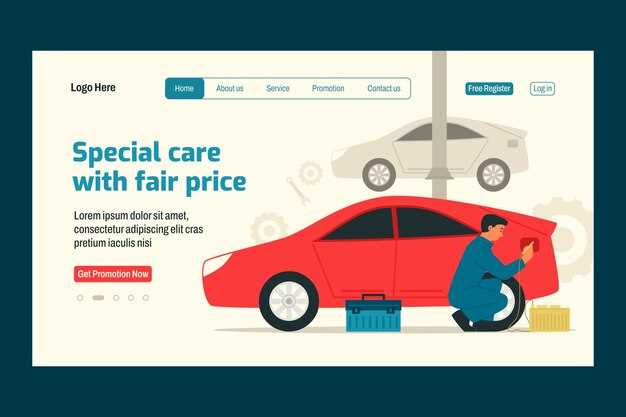

Owning a vehicle is a significant investment, and understanding the cost of annual car maintenance is crucial for any driver. Regular maintenance not only ensures the longevity of your vehicle but also helps in avoiding unexpected expenses that can arise from neglect. Implementing effective budgeting strategies can significantly ease the financial burden associated with vehicle upkeep.
One of the first steps to managing your annual maintenance cost is to create a detailed budget. This involves estimating expenses based on your car’s age, make, and model, as certain vehicles require more frequent or specialized maintenance. By analyzing past maintenance records, you can anticipate future costs and allocate funds accordingly.
Furthermore, prioritizing preventative maintenance is an essential strategy. Regular oil changes, tire rotations, and brake inspections can prevent costly repairs down the line. By understanding the importance of maintenance, you can make informed decisions on when to spend and how much to save, ensuring that your vehicle remains in optimal condition without breaking the bank.
Understanding the Breakdown of Annual Maintenance Expenses

When budgeting for your vehicle, it’s crucial to understand the various components of annual maintenance costs. These expenses can be categorized into several key areas to provide a clearer picture of what to expect.
1. Routine Services: Most vehicles require regular maintenance to ensure optimal performance. This includes oil changes, tire rotations, and fluid checks. Routine services typically account for a significant portion of the annual budget, and it’s advisable to follow the manufacturer’s recommendations for these services.
2. Inspections: Safety inspections and emissions tests are mandatory in many regions. These inspections can vary in cost based on location and vehicle type, but they are essential for compliance and to ensure your vehicle operates safely.
3. Wear and Tear Repairs: Over time, components such as brakes, tires, and batteries will wear out and need replacement. Setting aside funds for these repairs is vital, as they often arise unexpectedly and can be costly. Regular wear and tear should be considered when planning your annual maintenance budget.
4. Unexpected Repairs: Despite diligent maintenance, unforeseen issues can occur. These might include engine problems, transmission failures, or electrical system malfunctions. It’s wise to have a portion of your budget allocated for such unexpected repairs, as they can significantly impact your finances.
5. Accessories and Upgrades: If you plan to enhance your vehicle with new accessories or upgrades, such as new tires or advanced technology systems, include these prospective costs in your annual budget. While optional, they can improve your driving experience and vehicle performance.
6. Labor Costs: Labor charges can vary widely depending on the service provider and your vehicle’s complexity. Understanding the typical labor rates in your area will help you estimate the total maintenance costs more accurately.
In conclusion, by breaking down your anticipated annual maintenance expenses into distinct categories, you can create a more effective budgeting strategy. This proactive approach not only ensures your vehicle remains in peak condition but also provides financial peace of mind.
Creating a Monthly Savings Plan for Car Maintenance

Establishing a monthly savings plan for car maintenance is essential for minimizing the impact of unexpected costs. By setting aside a specific amount each month, you can ensure that funds are available for regular upkeep and repairs.
Start by estimating your annual maintenance expenses. Consider factors such as oil changes, tire rotations, brake inspections, and any anticipated repairs. Once you have an estimated total, divide this figure by twelve to determine how much you need to save each month.
For example: If your annual maintenance cost is projected to be $600, you should aim to save $50 each month. This systematic approach allows for better budgeting and reduces the financial stress when it’s time to pay for services.
To make the most of your savings plan, consider automating your savings. Set up a dedicated savings account specifically for car maintenance and arrange for a monthly transfer from your primary account. This ensures that the necessary funds are consistently available when car services are due.
Another tip is to regularly review and adjust your savings amount based on your car’s age and condition. As vehicle maintenance needs change over time, staying proactive with your savings strategy will help you avoid unexpected financial burdens.
Incorporating these strategies into your budgeting will not only support the longevity of your vehicle but will also provide peace of mind knowing you’re prepared for maintenance costs ahead of time.
Utilizing Tools and Apps for Budget Tracking
In today’s digital age, leveraging technology can significantly enhance your budgeting strategies for annual car maintenance costs. Various tools and apps are designed specifically to help track expenses, making it easier to manage your finances effectively.
One fundamental benefit of using budgeting apps is the ability to categorize and monitor all car-related expenses in one place. Many applications allow you to input costs such as oil changes, tire rotations, and unexpected repairs, helping you visualize where your budget stands throughout the year. This not only promotes discipline in spending but also aids in identifying trends in maintenance costs.
Another useful feature of these tools is reminder notifications for upcoming maintenance tasks. This ensures that you do not overlook essential services, which can prevent costly repairs down the road. Timely maintenance can be integral to extending the lifespan of your vehicle, thus affecting your overall budget positively.
Furthermore, many budgeting apps sync with your banking accounts, automatically tracking expenses and categorizing them in real-time. This automation reduces the manual effort required for budget tracking, allowing you to focus on analyzing your financial health rather than just recording transactions.
To enhance your budgeting strategy, consider utilizing apps that offer analytical tools. These features can provide insights into your spending habits, help you set financial goals, and suggest budget adjustments based on historical data. By regularly reviewing these analytics, you can make informed decisions, ensuring your car maintenance budget remains aligned with your financial capabilities.
Ultimately, utilizing budgeting tools and apps will empower you to take control of your car maintenance costs. By continuously tracking expenses, setting reminders, and analyzing financial data, you can effectively manage your budget and reduce the risk of unexpected financial strain related to car ownership.







